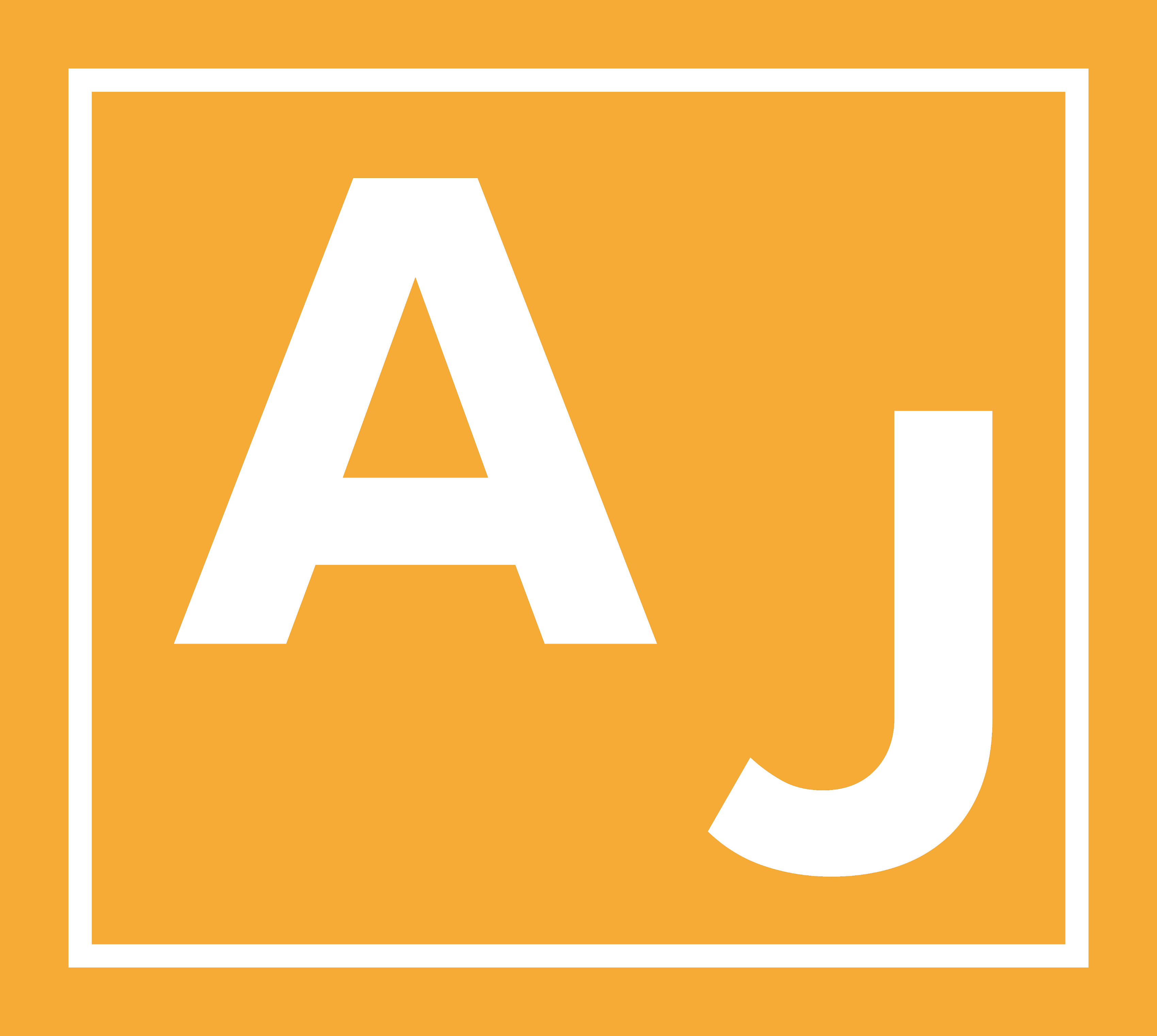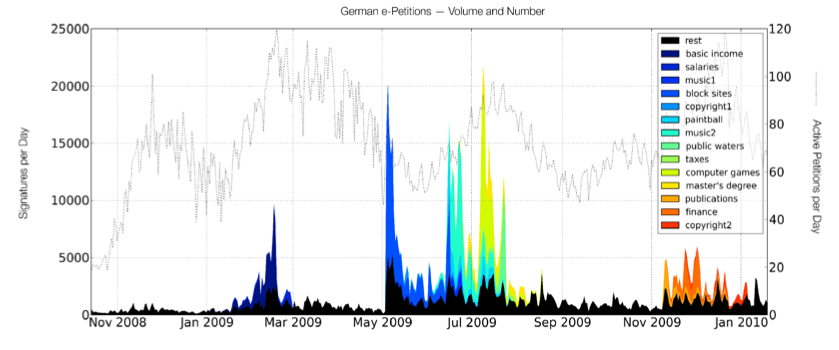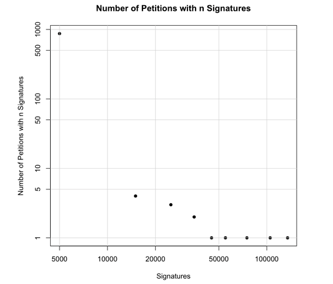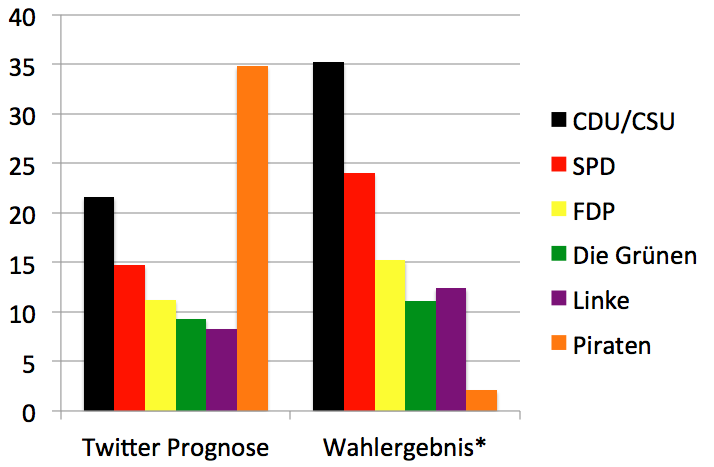In der aktuellen Ausgabe des Magazins Kommune21 findet sich ein Interview mit mir zum Thema Onlinekommunikation für Städte und Gemeinden. Natürlich fiel auch das Stichwort “Stuttgart 21”. Anbei der Text des Interviews oder hier als pdf.
Herr Jungherr, als Mitglied der Arbeitsgemeinschaft KampagnenPraxis zeigen Sie Organisationen, wie sie das Internet für ihre Kommunikation erfolgreich nutzen können. Haben insbesondere Institutionen der öffentlichen Hand hier Nachholbedarf?
Ja. Dieser Nachholbedarf ist mit dem scheinbar geringen Anpassungsdruck von Kommunen an das Internet erklärbar. Politische Akteure waren spätestens seit dem Superwahljahr 2009 gezwungen, aktive Online-Präsenzen zu entwickeln. Verantwortlich dafür war die öffentliche Berichterstattung über die Online-Erfolge der Obama- Kampagne im Jahr 2008 und die damit plötzlich gestiegenen Erwartungen. Firmen haben ebenfalls ein großes Interesse daran, im Netz präsent zu sein, sei es zur Darstellung und Inszenierung der eigenen Marke oder um Kunden eine Dialogplattform zu bieten. Beispiele wie Dell-Hell oder United Breaks Guitars haben dazu geführt, dass viele Firmen Online-Kommunikation inzwischen sehr ernst nehmen. In den genannten Fällen sahen sich die Unternehmen Dell und United Airlines plötzlich heftiger Kritik im Netz gegenüber. Dieser Protest wurde so stark, dass die Firmeninhalte fast vollständig von den Inhalten der Kritiker verdrängt wurden. Die öffentliche Hand hat es da etwas leichter, weil sie quasi in zweiter Reihe steht. Wenn es in einer Kommune Probleme gibt, richtet sich der öffentliche Protest in der Regel erst einmal gegen die politischen Köpfe. Hier ist es interessant, ob Stuttgart 21 zu einer Änderung führt.
Wie verändern soziale Netzwerke das Kommunikationsverhalten der Bürger?
Soziale Netzwerke übernehmen gerade in jüngeren Altersgruppen zunehmend die Rolle von Informationsfiltern. Immer mehr Kommunikationsinhalte erreichen die Nutzer in Form von Links über ihre Freunde oder Kontakte auf dem jeweiligen Netzwerk. Dies gilt für Musikvideos und Angebote klassischer Medien ebenso wie für Materialien von politischen Akteuren. Und all diese Inhalte konkurrieren um die begrenzte Aufmerksamkeit der Nutzer. Der Nachrichtenwert wird dabei um einen sozialen Wert ergänzt: Die Frage ist nicht mehr, wie wichtig die Nachricht ist, sondern wer die Information verschickt hat.
Bürgerproteste gegen Großprojekte organisieren sich zunehmend in solchen Netzwerken. Wie können Kommunen hier gegenhalten?
Indem sie präsent sind. Momentan finden viele Diskussionen im Netz über Infrastrukturprojekte oder Kommunen fast ausschließlich ohne Beteiligung der Städte und Gemeinden statt. Das lässt sich sehr leicht erklären: Wenn eine Kommune ein Projekt kommunizieren will, beruft sie eine Pressekonferenz ein. Bürgerinitiativen haben es da schwerer, die öffentliche Aufmerksamkeit zu erregen. Deshalb haben sie schon früh den Weg ins Netz gefunden und informieren auf eigenen Web- Seiten und in sozialen Netzwerken über ihre Anliegen. Dies tun Kommunen nur unzureichend. Der interessierte Bürger trifft im Web also meist nur auf die Informationen der Kritiker von umstrittenen Projekten. Hier gilt es für Städte und Gemeinden, frühzeitig auf eigenen Internet-Seiten und Profilen in sozialen Netzwerken mit verständlich aufbereiteten Inhalten über ihre Projekte zu informieren.
Wie würden Sie eine Kampagne für ein bei Bürgern umstrittenes Vorhaben einer Stadt aufsetzen?
Kommunen müssen frühzeitig mögliche Streitpunkte identifizieren. Hier bieten sich demoskopische Umfragen mit offenen Fragen bei von dem Projekt betroffenen Bürgern an. Auf Basis dieser Ergebnisse sollte entweder die Projektplanung angepasst werden oder frühzeitig Informationsveranstaltungen stattfinden, welche die Streitpunkte adressieren und entschärfen. Im eher fortgeschrittenen Stadium sollte das Projekt auf einer Internet-Seite ausführlich und verständlich dargestellt werden. Eine eigene Projektpräsenz in sozialen Netzwerken ist in den meisten Fällen wahrscheinlich übertrieben. Allerdings sollten die Informationen auf der Web-Seite leicht verlinkbar sein, sodass Unterstützer sie in sozialen Netzwerken verwenden können. Zusätzlich sollten Stadt oder Projektplaner verfolgen, ob und wie im Netz über das Vorhaben gesprochen wird. Wenn sich dort gesteigertes Interesse zeigt, ist es entscheidend, dass Stadt oder Planer aktiv auf die vorgebrachten Kritikpunkte reagieren.
Wie muss eine Kommunikationsstrategie aussehen, um die Bürger zu überzeugen?
Ziel sollte es sein, bei interessierten Bürgern um Zustimmung für das Projekt zu werben. Hierzu gilt es, relevante Informationen verständlich und leicht zugänglich zu präsentieren. Wichtig ist aber auch, dass der Prozess nicht irgendwann auf halber Strecke als abgeschlossen betrachtet wird. Die Stadt muss über den gesamten Verlauf der Planung und Umsetzung eines Projektes versuchen, Ängste und Sorgen der Bürger zu identifizieren und dazu klar Stellung zu beziehen.
Welche technischen Hilfsmittel empfehlen Sie?
Inzwischen gibt es sehr gute und einfach zu bedienende Hilfsmittel, um online zu kommunizieren. Allerdings ist die technische Entwicklung so schnell, dass es wenig hilft, einzelne Anbieter zu empfehlen. Bei der Wahl der Hilfsmittel oder Online-Plattformen sollten sich Kommunen vielmehr zwei Fragen stellen: Wo lassen sich Informationen umfassend und leicht zugänglich bereitstellen und wo halten sich die Adressaten der Kommunikationsinhalte auf? Als Antwort auf die erste Frage bietet sich momentan das Betreiben einer eigenen Web-Seite an. Um die zweite Frage zu beantworten, muss geprüft werden, welche sozialen Netzwerke in der Region stark genutzt werden.
Wie beurteilen Sie die Wirkung von Social Media, führen soziale Netzwerke zu neuen Formen der politischen Partizipation oder wird deren Einfluss überschätzt?
Die zunehmend aktive Nutzung von Social Media, wie zum Beispiel Blogs, Podcasts und Videos, in Kombination mit der steigenden Popularität von sozialen Netzwerken führt zu einer stärkeren Sichtbarkeit von politischem Protest. Interpretiert man dies positiv, führen originelle Videos, Poster-Remixe und hohe Unterstützerzahlen auf Facebook dazu, dass die politische Elite stärker basisdemokratisch kontrolliert wird. Interpretiert man es negativ, führt es dazu, dass durch polarisierende Inhalte und hohe Unterstützerzahlen für Ad-hoc-Kampagnen ein quasi-plebiszitäres Element in den politischen Prozess drängt, das durch das Grundgesetz in dieser Form bewusst nicht vorgesehen war. Welche Wertung man der Entwicklung auch gibt, öffentliche Akteure sehen sich einer volatileren öffentlichen Meinung gegenüber, in der auch Anliegen von Kleingruppen plötzlich eine hohe Sichtbarkeit und Unterstützung erfahren können. Vor diesem Hintergrund langfristige und nachhaltige Projekte umzusetzen, ist eine neue Herausforderung.
Das Interview führte Alexander Schaeff.
Präsent sein. Ein Interview von Alexander Schaeff mit Andreas Jungherr. Kommune21. 1/2011. S.20f.




